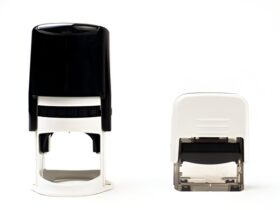Chronic illness or disabilities require extended time away from work and responsibilities. The carer certificate online is proof of your involvement in ongoing caregiving duties. These extended certificates differ from standard medical certificates as they specifically address the needs of caregivers rather than patients, acknowledging the critical support services provided to dependents who require continuous assistance. The process of securing extended caregiver documentation has evolved with telehealth services. Some platforms now offer specialized consultations focused on caregiver requirements. Carers are connected with healthcare providers who understand the challenges they face. The assessment considers the dependent’s medical needs and the caregiver’s role in providing essential support, resulting in comprehensive documentation reflecting the ongoing nature of care responsibilities.
Renewal options
If extended support is required, NextClinic helps meet those documentation needs. Initial certificates often cover 1-3 months, depending on the dependent’s condition and care requirements. For chronic conditions requiring permanent care, healthcare providers may issue certificates valid for 6-12 months, reducing the frequency of renewal consultations. Many telehealth platforms offer streamlined renewal processes for existing patients, requiring shorter follow-up consultations to extend documentation.
The renewal assessment evaluates any changes in the dependent’s condition or care needs since the previous certificate. This ongoing monitoring ensures documentation remains accurate and appropriate for the current situation. Healthcare providers may adjust certificate details during renewals to reflect evolving care requirements or incorporate recommendations from specialists involved in the dependent’s treatment plan.
Required documentation
- Medical history – Compile comprehensive information about your dependent’s condition, including diagnosis reports, treatment plans, and specialist recommendations
- Care schedule – Document your weekly care routine, highlighting time-intensive responsibilities and specialized support you provide
- Previous certificates – Have copies of any previous carer documentation ready for review to establish continuity of care
- Impact statement – Prepare to explain how caregiving responsibilities affect your other obligations, like employment or education
- Support letters – When available, include statements from your dependent’s regular healthcare providers confirming their need for ongoing care
These preparatory steps help ensure the telehealth assessment captures all relevant information for proper certificate issuance.
Employer and institution recognition
Extended carer certificates serve multiple official purposes when properly documented by qualified healthcare professionals. Employment protection legislation in many regions recognizes these certificates as valid documentation for caregiver leave entitlements, providing job security during extended care periods. Government assistance programs often require formal certification to qualify for caregiver benefits or financial support when work isn’t possible.
Insurance providers may request these certificates when processing claims related to dependent care or when evaluating caregiver support benefits. Educational institutions typically accept proper documentation to arrange accommodations for students with caregiving responsibilities, including extended assignment deadlines or modified attendance requirements. The comprehensive nature of these certificates helps validate the legitimate need for special arrangements across various institutions.
Telehealth advantages for ongoing care
- Reduced disruption – Virtual consultations minimize time away from caregiving duties, eliminating travel time and waiting room delays
- Consistent provider access – Establish relationships with healthcare providers who become familiar with your specific caregiving situation
- Regular monitoring – Scheduled check-ins help track changes in care needs without unnecessary complete reassessments
- Documentation management – Digital systems maintain certificate history, simplifying the renewal process and ensuring continuity
- Multi-participant options – Some platforms allow the dependent to join consultations when appropriate, providing direct input about care needs
These telehealth benefits particularly serve caregivers who find leaving their dependents difficult or those in remote locations with limited local healthcare access.












Leave a Reply